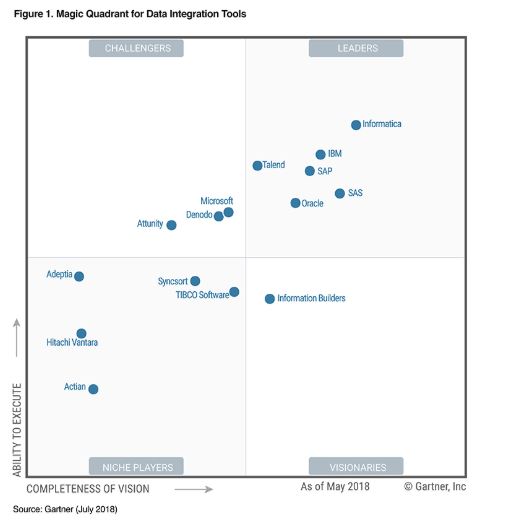Master data management (MDM) is a technology-enabled
discipline in which business and IT work together to ensure the uniformity,
accuracy, stewardship, semantic consistency and accountability of an
enterprise’s official, shared master data assets.
MDM solutions are enterprise software products that:
o
Support the global identification, linking and
synchronization of master data across heterogeneous data sources through
semantic reconciliation of master data.
o
Create and manage a central, persisted system of
record or index of record for master data.
o
Support the four MDM hub implementation styles,
as defined by Gartner (see the Completeness of Vision section, “Offering
[Product] Strategy”).
o
Enable generation and delivery of a trusted
version of one or more subject areas (i.e., data domains) to all stakeholders,
in support of various business initiatives.
o
Support ongoing master data stewardship and
governance requirements through workflow-based monitoring and corrective-action
techniques.
o
Are agnostic to the business application
landscape in which they reside; that is, they do not assume or depend on the
presence of any particular business application(s) to function (aka
“application-neutral”).
Informatica & Orchestra Networks lead the
pack in "Gartner Magic Quadrant for Master Data Management Solutions
2018" with SAP, IBM, Stibo, Semarchy, Profisee are challenger.














